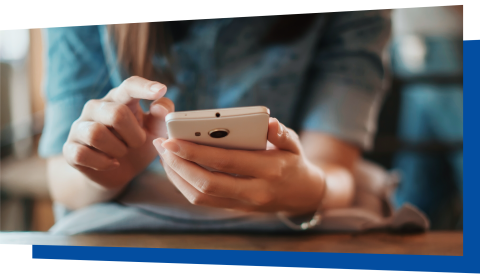COVID-19: Get Tested
Do you have COVID-19 symptoms? Have you been exposed to COVID-19? If your answer is “yes” to either of these questions, COVID-19 testing can help you know if you have COVID-19 so you can decide what to do next to protect yourself and others.
While the Wisconsin Department of Health Services (DHS) does not currently supply free COVID-19 self-tests, they are widely available to purchase at pharmacies and retail stores.
Test for COVID-19 if you were exposed to COVID-19 or if you have COVID-19 symptoms.
- Test for COVID-19 if you have symptoms.
- Test for COVID-19 if you were exposed to someone with COVID-19. Test five days after exposure to someone with COVID-19.
- Consider testing for COVID-19 if you or the people around you have risk factors for severe illness. Test as close in time to the gathering as you can.
While you wait for your COVID-19 test results, stay home and monitor your symptoms to protect yourself and others.
For more information about COVID-19 testing, visit: COVID-19 Testing: You Need to Know | CDC (Centers for Disease Control and Prevention)
There are many ways test for COVID-19 in Wisconsin:
- Contact a doctor or primary health care provider, pharmacy, or local community health center to see if they offer testing. Local or Tribal health departments can also help you find testing options near you.
- Self-tests are also available for purchase over-the counter at pharmacies and online.
- The Center for Medicare and Medicaid Services has offered guidance (PDF) for people seeking tests after the public health emergency ended on May 11, 2023.
If your COVID-19 test is positive, it means the virus was detected and you have or recently had an infection. If you have symptoms, stay home and away from others (including people you live with who are not sick). Take steps to prevent spreading COVID-19. You can go back to your normal activities when, for at least 24 hours:
- Your symptoms are getting better overall, and
- You have not had a fever (and are not using fever-reducing medication).
If your COVID-19 test is negative, it means the test did not detect the virus and you likely do not have COVID-19.
For more information about what your COVID-19 test result means, visit: COVID-19 Testing: What You Need to Know | CDC
COVID-19 self-tests (also called an at-home test or over-the-counter test) are a type of COVID-19 test that you can use anywhere. Self-tests are easy to use and produce rapid results.
For more information about COVID-19 self-testing, visit the DHS Self-Testing webpage or COVID-19 Testing: What You Need to Know | CDC
If you have at-home tests, visit the Food and Drug Administration (FDA) website to find the current list of authorized at-home tests and their expiration date information.

Testing support resources for health care workers
Guidance for Healthcare Workers about COVID-19 (SARS-CoV-2) Testing | CDC
